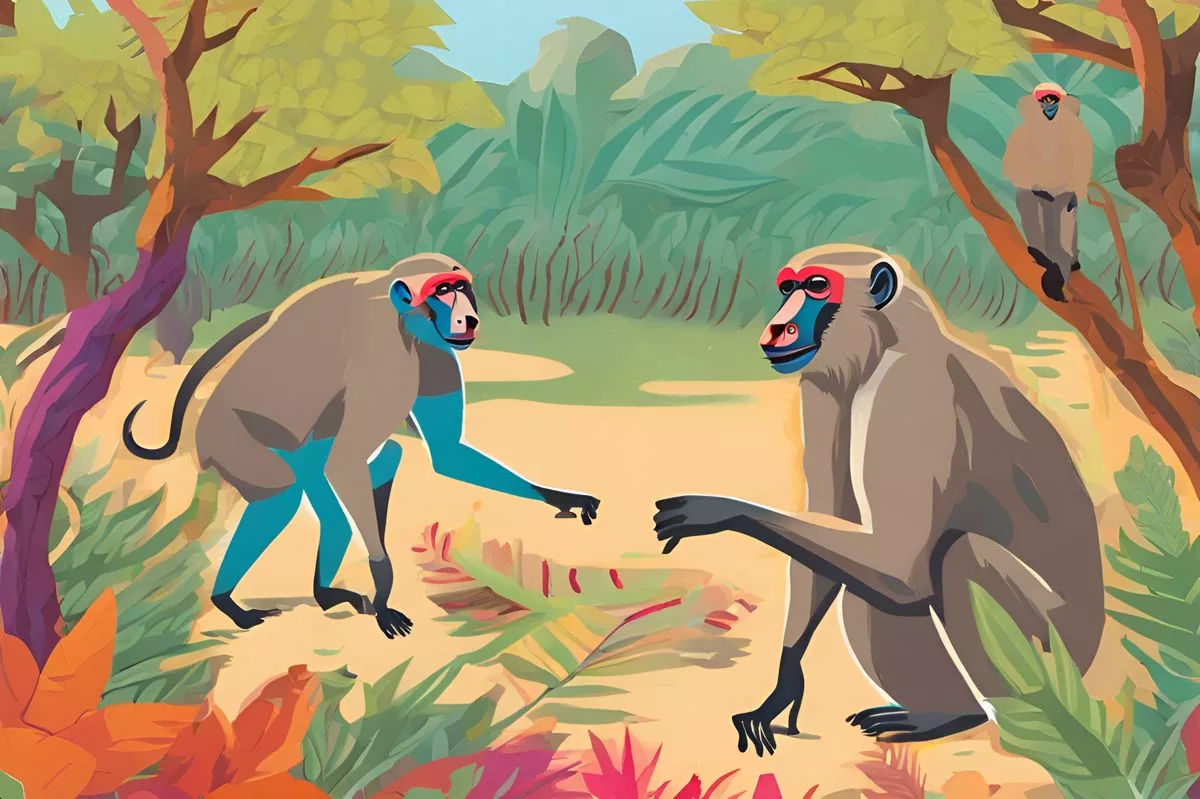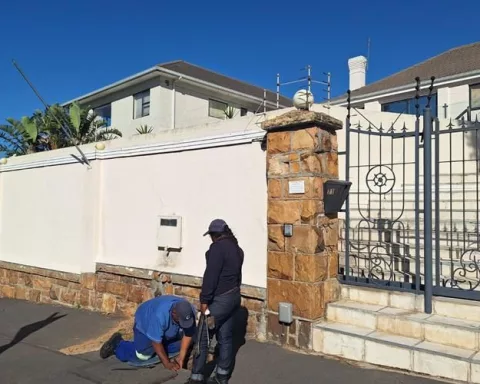The CPBMJTT aims to incorporate the perspectives of community members and stakeholders instead of enforcing top-down solutions in their community dialogues to strengthen community engagement and develop customized solutions for baboon management. Led by representatives from SANParks, CapeNature, and the City of Cape Town, the meetings will empower community members to suggest relevant interventions and reflect the African philosophy of Ubuntu. The CPBMJTT is committed to transparency and inclusivity, and the community can access the Cape Peninsula Baboon Strategic Management Plan readily on their websites.
Strengthening community engagement is the primary objective of the Cape Peninsula Baboon Management Joint Task Team (CPBMJTT) initiatives. Led by representatives from SANParks, CapeNature, and the City of Cape Town, the CPBMJTT will launch dialogues within communities affected by baboons. The team will foster collaborative relationships, develop customized solutions, and empower community members to suggest relevant interventions. The CPBMJTT aims to incorporate distinct community insights and perspectives instead of enforcing top-down solutions, reflecting the African philosophy of Ubuntu. Stakeholders and community members can access the Cape Peninsula Baboon Strategic Management Plan readily on the websites of SANParks, CapeNature, and the City of Cape Town.
Set against the vibrant backdrop of Cape Peninsula, the communities of Cape Town are bracing themselves for a series of crucial community engagements. These engagements, led by the Cape Peninsula Baboon Management Joint Task Team (CPBMJTT), will be initiated in June 2024. The CPBMJTT comprises representatives from SANParks, CapeNature, and the City of Cape Town. The team is poised to launch dialogues within communities affected by baboons. Central to these discussions is the Cape Peninsula Baboon Strategic Management Plan (CPBSMP), a detailed plan setting forth sustainable management strategies for the Chacma baboons of Cape Peninsula.
Collaborative Relationships and Customized Solutions
The heart of these community gatherings lies in fostering collaborative relationships with the community members. The objective is to develop customized solutions and interventions, specifically designed for each area. This initiative mirrors the enduring African philosophy of Ubuntu – “I am because we are.” It signifies communal responsibility and collaboration. The CPBMJTT is focused on understanding and incorporating the distinct insights and perspectives of the communities they serve, instead of enforcing top-down solutions.
The CPBMJTT will enlighten the participants about the history and movement patterns of the baboon troops in their specific areas. They will also present a range of interventions and solutions, exclusively designed by the three authorities in line with their respective mandates. Open discussions about the transition period will be encouraged as the team is working towards fully implementing the CPBSMP.
Empowering the Community
A vital component of these meetings is the active involvement of community members. Prior to the meetings, participants are advised to familiarize themselves with the CPBSMP and the Fencing Report published the previous year. This will empower them to engage in meaningful dialogues and suggest relevant solutions and interventions. This demonstrates the power of informed citizen engagement.
The meetings are planned to be engaging and participatory and are scheduled from 16:30 to 18:30. Venues will be announced soon. Therefore, residents from Simon’s Town, Murdock Valley, Kommetjie, Scarborough, Misty Cliffs, Constantia, Tokai, Zwaanswyk, Da Gama, Welcome Glen, Glencairn, Sunnydale, Capri, Imhoff’s Gift, Heron Park, and Ocean View are encouraged to save the dates.
Inclusive Approach and Stakeholder Engagement
Apart from the community engagements, the CPBMJTT is also planning meetings with a broader group of stakeholders. These stakeholders include experts, scientists, researchers, and NGOs interested in the Chacma baboon population of Cape Peninsula. This additional collaboration reflects the CPBMJTT’s dedication to a holistic, inclusive, and informed approach to baboon management.
The Cape Peninsula Baboon Strategic Management Plan can be accessed readily on the websites of SANParks, CapeNature, and the City of Cape Town. This easy access demonstrates the CPBMJTT’s commitment to transparency and inclusivity and enables community members to acquaint themselves with the plan and contribute to its implementation.
The Spirit of Cooperation and Mutual Respect
As the Southern Peninsula communities approach these engagements, one can sense a growing collective responsibility. There is a realization that managing the Chacma baboons is not solely the responsibility of the CPBMJTT but a shared task. This spirit of cooperation and mutual respect, combined with the comprehensive strategies of the CPBSMP, holds the promise of sustainable cohabitation between the communities and the baboons.
What is the Cape Peninsula Baboon Management Joint Task Team (CPBMJTT) initiative?
The CPBMJTT initiative aims to strengthen community engagement and develop customized solutions for baboon management. It comprises representatives from SANParks, CapeNature, and the City of Cape Town.
What is the African philosophy of Ubuntu?
The African philosophy of Ubuntu signifies communal responsibility and collaboration, and the CPBMJTT initiative aims to incorporate the distinct insights and perspectives of the communities they serve, instead of enforcing top-down solutions.
How does the CPBMJTT empower the community in baboon management?
The CPBMJTT empowers the community by encouraging active involvement of community members in their community dialogues. Participants are advised to familiarize themselves with the Cape Peninsula Baboon Strategic Management Plan and the Fencing Report published the previous year, which will enable them to suggest relevant interventions and solutions.
Who are the stakeholders involved in the CPBMJTT initiative?
Apart from community engagements, the CPBMJTT is also planning meetings with experts, scientists, researchers, and NGOs interested in the Chacma baboon population of Cape Peninsula. This additional collaboration reflects the CPBMJTT’s dedication to a holistic, inclusive, and informed approach to baboon management.
How can community members access the Cape Peninsula Baboon Strategic Management Plan?
The Cape Peninsula Baboon Strategic Management Plan can be accessed readily on the websites of SANParks, CapeNature, and the City of Cape Town. This easy access demonstrates the CPBMJTT’s commitment to transparency and inclusivity and enables community members to acquaint themselves with the plan and contribute to its implementation.
What is the spirit of cooperation and mutual respect in baboon management?
As the Southern Peninsula communities approach these engagements, there is a realization that managing the Chacma baboons is not solely the responsibility of the CPBMJTT but a shared task. This spirit of cooperation and mutual respect, combined with the comprehensive strategies of the Cape Peninsula Baboon Strategic Management Plan, holds the promise of sustainable cohabitation between the communities and the baboons.












